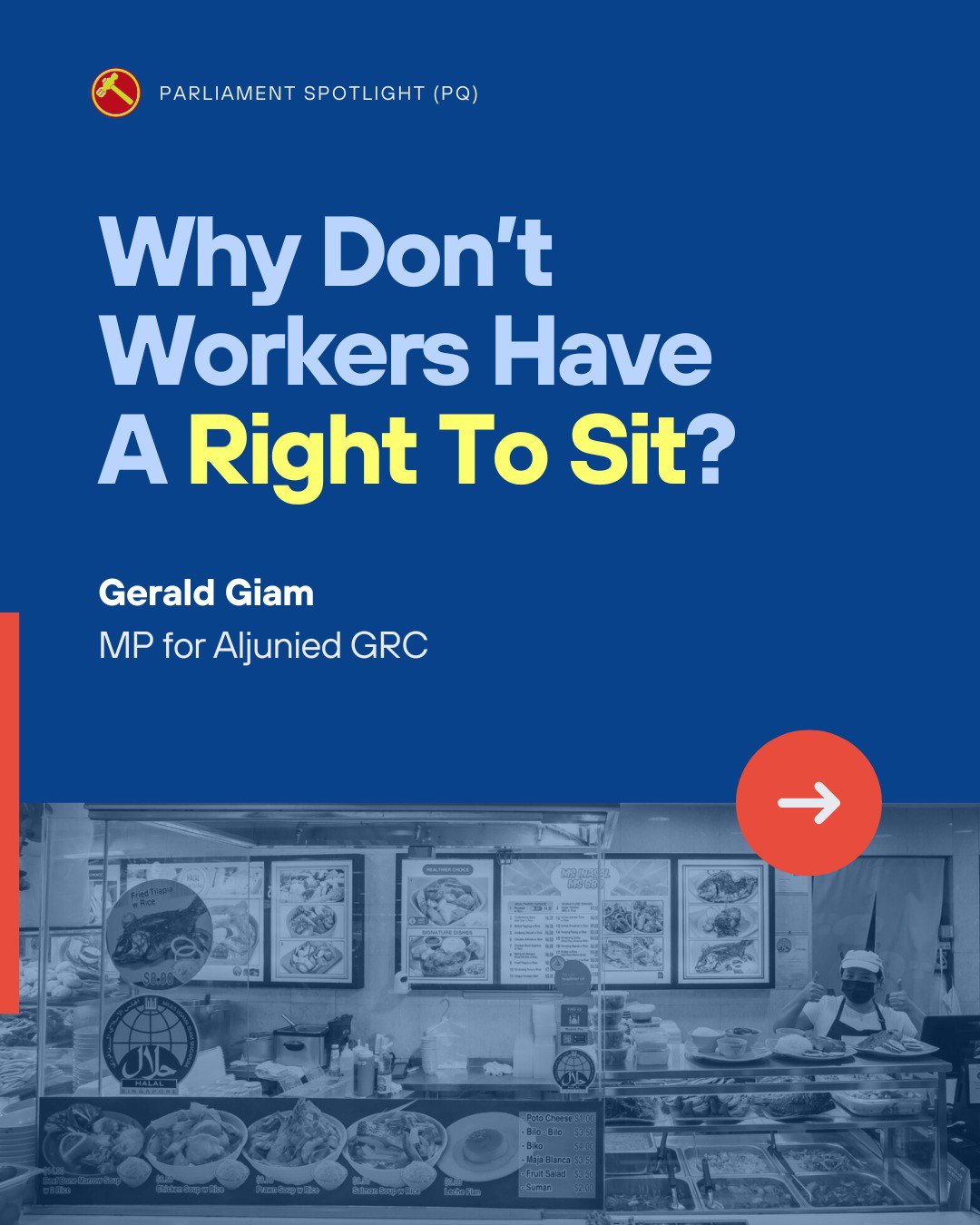In Parliament on 24 Sep 2025, I asked the Minister for Manpower why there aren’t mandatory rest periods for service workers—so they can actually sit during off-peak hours. Prolonged standing isn’t just tiring—it can cause serious long-term health issues.
The Minister responded that mandatory rules might not fit every workplace. MOM’s current approach relies on voluntary guidelines, like providing anti-fatigue mats and sit-stand stools, so solutions can be tailored.
Can we do more to protect our workers’ health? Drop your thoughts in the comments!
This is the full question and answer:
Reasons against Mandatory Rest Periods for Service Workers and Ensuring Compliance with Voluntary Guidelines
Mr Gerald Giam Yean Song asked the Minister for Manpower (a) what is the reason for not mandating that service workers be allowed to sit during off-peak periods given the health risks of prolonged standing; (b) how does the Ministry ensure adherence to voluntary guidelines in workplaces, such as food courts and retail stores; and (c) whether it will mandate employers to allow sitting to prevent long-term health problems.
Dr Tan See Leng: The Ministry of Manpower (MOM) encourages all employers to provide adequate rest and welfare for their employees. To help employers create a conducive and healthy work environment, MOM and the Workplace Safety and Health (WSH) Council have issued the WSH Guidelines on Improving Ergonomics in the Workplace, which provide recommendations on how employers can support employees who need to stand while at work. These include allowing employees to sit and rest at regular intervals and providing anti-fatigue mats or sit-stand stools.
Mandatory regulations on when service workers should be allowed to sit may not effectively address the diverse operational requirements of different workplaces. Our current approach allows employers to implement appropriate solutions tailored to their specific circumstances and their workers’ needs.
MOM and the WSH Council work with industry associations, unions and employers to promote awareness and adoption of the good practices in the Guidelines on Improving Ergonomics in the Workplace. We will continue to regularly review our occupational health policies, taking into account the latest scientific evidence and international best practices.
